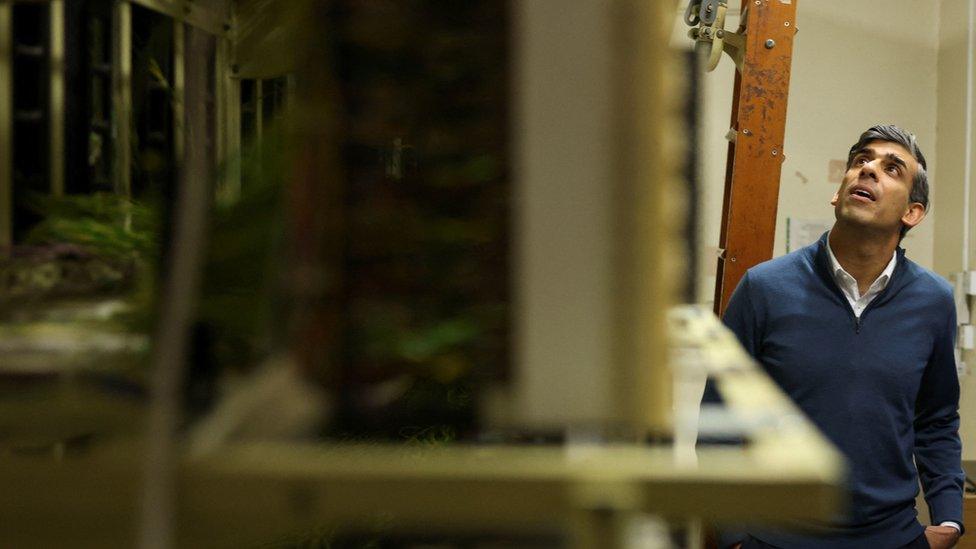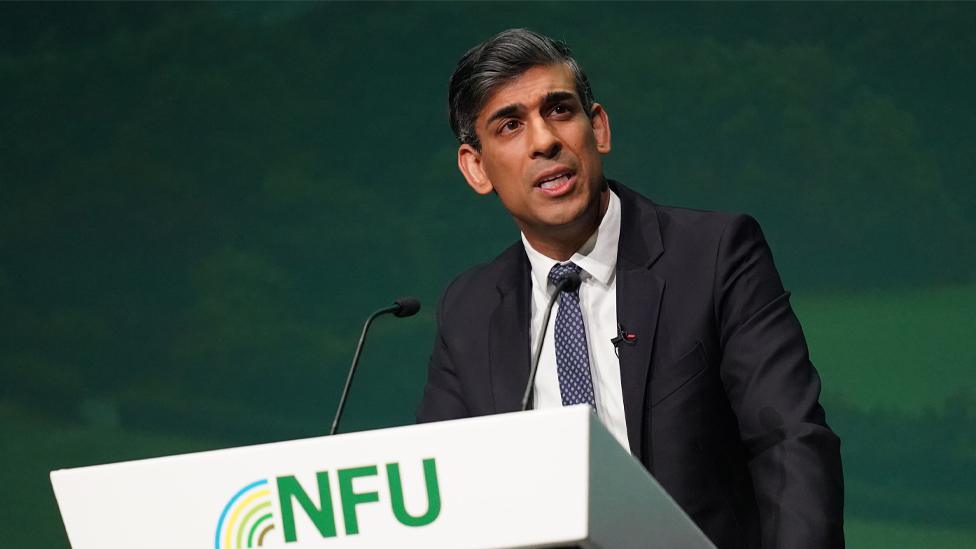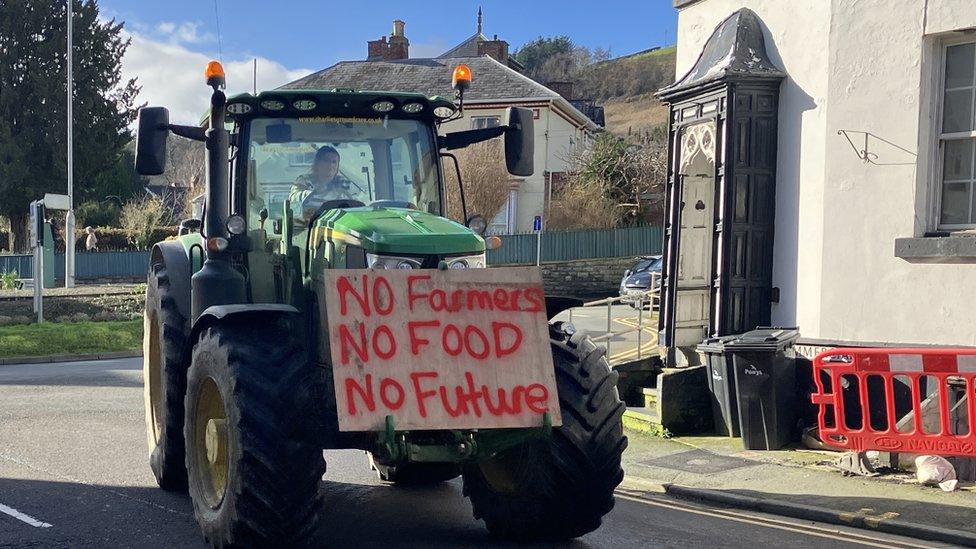Rishi Sunak attacks Welsh farm subsidy plans
- Published
- comments
Rishi Sunak criticises the Welsh government's proposed changes to farming subsidies
Conservative Prime Minister Rishi Sunak has joined criticism of Welsh government proposals for changes to farm subsidies.
Describing them as "damaging" and "shocking", he accused Welsh Labour of risking UK food supply security.
Proposals under consultation for farmers to be given cash for having trees on 10% of their land have sparked protests.
Welsh ministers said the new scheme is designed to support all farmers.
Mr Sunak, who met with farmers on Thursday, was presented with a letter which called on the UK government to intervene and potentially withhold funding for the Welsh government's agricultural budget.
The two men vying to be the next first minister of Wales - Vaughan Gething and Jeremy Miles - have both promised to listen to farmers' concerns.
In recently days outgoing First Minister Mark Drakeford was followed into a college in Rhyl, while a go-slow protest was held in Newtown at the weekend.
Speaking to BBC Wales ahead of the Welsh Conservatives' party conference in Llandudno, Mr Sunak said farming unions were "rightly concerned about Labour's policies here in Wales".
He said Labour's plans "by their own assessment would cost 1000s of jobs, reduce our food security and damage farm income, and that's why those plans have rightly been described as damaging and shocking".

Rishi Sunak visited a telephone exchange on Anglesey on Thursday
After the UK left the European Union it has had to draw up its own schemes to support agriculture.
Farming subsidies are controlled in Wales in Cardiff, while the UK government manages them in England.
A new post-Brexit farm payments scheme in England has been criticised for focusing on environmental policy over food productivity.
At a conference earlier this week Mr Sunak promised a package of measures to help farmers which were broadly welcomed by the National Farmers Union, although it said no actual new money was included.
Mr Sunak told the BBC: "We announced more funding to back British farmers to produce more food, because I think that's the right plan."
He added: "We've committed to deliver every penny of the funding that we had previously [from the EU], £2.4bn across the United Kingdom.
"We have held to that commitment but how that's been used in Wales is incredibly damaging for Welsh farmers."
The letter given to Mr Sunak said the group of farmers "very much hoped" the UK government would make the Welsh government's funding dependent on a more "realistic and sustainable plan for the future of agriculture and food production in Wales".
The campaigners described the Welsh government as "unreasonable" and said its stance posed a "profound risk to farmers' livelihoods".
Mr Sunak was asked about reports that the UK government was buying the Wylfa site from its previous developer, but said it wouldn't be "right for me to comment on any conversations that may or may not be taking place".
Last year the UK government promised to fund the electrification of North Wales mainline.
Asked for a timescale, he said: "These rail lines do take time.
"But the key thing is the money has now been put aside to deliver it."
A Welsh government spokesperson said: "In Wales, we have maintained the Basic Payment Scheme at £238m in 2024, which was not easy in the financial circumstances. It is something farmers asked us to do in order to provide stability and we listened.
"The UK government has not maintained BPS at the same levels in England and, unlike what the UK government has done in England, we are not proposing to bring forward fragmented schemes. We have developed the Sustainable Farming Scheme, in partnership with the sector, in a way which is designed to support all farmers in Wales through a Universal Baseline Payment.
"It must also be remembered we continue to feel the impact of decisions taken by the UK government which means we have lost £243m in replacement EU funding.
"The Welsh government is committed to supporting the agriculture sector in Wales and we have been very clear working in partnership with the farming sector is key. We will continue to do so."
- Published20 February 2024

- Published18 February 2024

- Published22 February 2024
